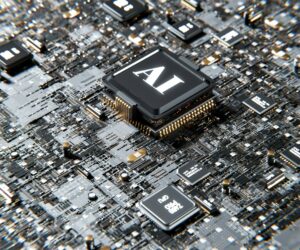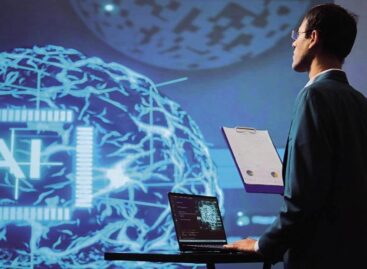PwC Value in Motion: AI’s economic stimulus impact could reach 15% by 2035
According to PwC’s latest research, artificial intelligence (AI) could add one percentage point to annual global economic growth over the next decade—a pace comparable to the industrial expansion of the 19th century.

- The application of AI could increase global GDP by an additional 15 percentage points by 2035.
- The growth-boosting effect of AI globally depends not only on its capabilities but also on its responsible deployment and the level of public trust it garners.
- While AI accelerates growth, climate-related physical risks could shrink the global economy by nearly 7% by 2035.
- Industries will be reshaped in new ways over the coming decade, leading to the emergence of cross-sector innovation fields.
- To support its clients in this new environment, PwC leverages numerous innovations to help organizations capture value from enterprise AI—an approach reflected in its rebranded identity after 14 years.
AI’s economic impact depends on responsible deployment
PwC’s new study shows that AI could boost global economic output by as much as 15 percentage points over the next decade. This equates to an extra one percentage point per year—comparable to growth seen during the 19th century’s industrial revolution.
The PwC report, “Value in Motion”, is based on data-driven scenario analysis. One of its key conclusions is that AI-driven growth is not guaranteed. It hinges not only on technical success but also on factors such as responsible AI use and public and institutional trust. In scenarios characterized by low trust and collaboration, AI’s contribution to economic growth drops to 8% over ten years—or as low as 1% in the most pessimistic cases.
The analysis suggests that industries will evolve in new ways to meet consumer needs, creating cross-sector innovation zones. For example, the rise of electric vehicles has drawn in utility providers, battery manufacturers, tech firms and others into the mobility space—enabling them to generate value alongside traditional automakers.
“As the structure of the economy transforms, value creation will increasingly come from organizations that identify new connections across traditional industries. Business leaders can unlock significant growth by focusing on changing customer needs and aligning their operations with cutting-edge technologies.”
– emphasized László Radványi, Country Managing Partner of PwC Hungary.
AI and its climate implications
PwC’s analysis also shows that while AI can accelerate economic growth, the costs of climate-related physical risks pose limitations. Based on their model, these risks could shrink the global economy by nearly 7% by 2035.
AI adoption is expected to drive up energy consumption in data centers, but this impact could be offset if AI is also used to develop energy efficiency solutions.
Creating value through new pathways
As technology and other megatrends disrupt the global economy, PwC is actively helping its clients harness enterprise AI value through several initiatives.
The PwC Agent OS (agent-based operating system) enables businesses to integrate and scale intelligent AI agents into their operations up to ten times faster than traditional methods. PwC not only offers this technology to clients but also applies it internally—deploying hundreds of AI agents for various tasks to improve tax, audit, and advisory services.
“PwC is continuously enhancing its services to help clients capture the full potential of enterprise AI. Our latest technological advances—including our global genAI chatbot ChatPwC—alongside training programs and strategic alliances, aim to provide clients worldwide with more efficient, tailored solutions. Across our global network, 291,000 people—including nearly 1,000 in Hungary—have participated in structured AI training, demonstrating just how deeply AI has become embedded in our daily operations.”
– noted László Radványi.
Since early December, the firm has announced new collaborations with existing alliance partners (AWS, Google Cloud, Microsoft, and Oracle), complementing prior partnerships with Adobe, Anthropic, Guidewire, OpenAI, SAP, Salesforce, and Workday.
PwC launches new brand identity
PwC has updated its visual and verbal brand identity to better reflect its role in supporting clients by combining expertise and technology to help them succeed, sustain, and accelerate growth. The visual updates—including new imagery and a refreshed logo—symbolize PwC’s commitment to moving clients forward on their path to success.
“Our new brand elements reflect the energy and momentum with which we support clients in crucial moments—helping them create sustainable value, build trust, and achieve a successful future.”
– added Bori Palotai, Marketing Leader of PwC Hungary.
Related news
A developing digital employee who works independently – AI has taken the next level
🎧 Hallgasd a cikket: Lejátszás Szünet Folytatás Leállítás Nyelv: Auto…
Read more >Hungarian world first: AI calculator calculates how much a company will lose during the flu season and how much can be saved by using preventive technologies
🎧 Hallgasd a cikket: Lejátszás Szünet Folytatás Leállítás Nyelv: Auto…
Read more >Related news
(HU) Átadták a SIRHA Budapest 2026 Innovációs Termékverseny díjait
🎧 Hallgasd a cikket: Lejátszás Szünet Folytatás Leállítás Nyelv: Auto…
Read more >How does the forint exchange rate affect consumer prices?
🎧 Hallgasd a cikket: Lejátszás Szünet Folytatás Leállítás Nyelv: Auto…
Read more >HELL CITY has arrived, led by Michele Morrone
🎧 Hallgasd a cikket: Lejátszás Szünet Folytatás Leállítás Nyelv: Auto…
Read more >








